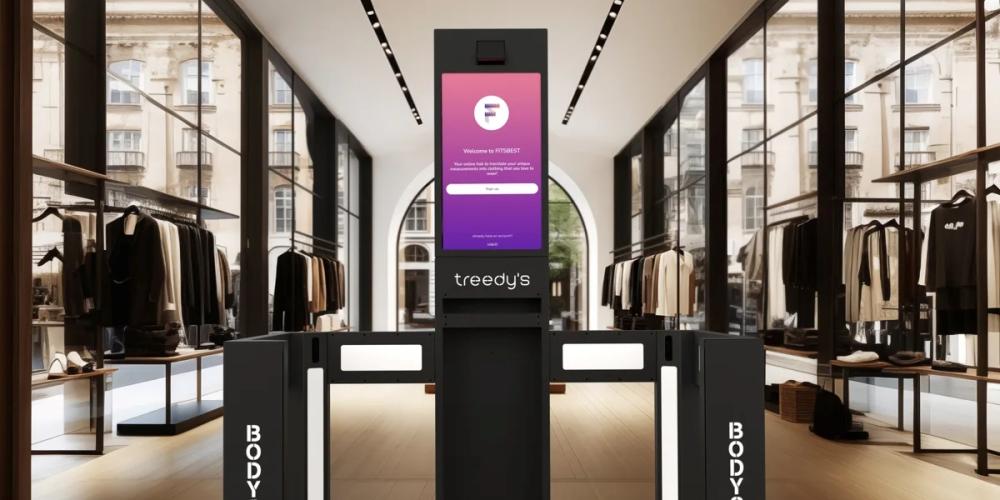
Purchasing clothes without the need for trying them on and always getting the right size is now possible in two Decathlon stores in Evere and Wavre. This has been made possible by body scanners from Treedy's, a Brussels-based start-up. These scanners, developed in collaboration with the VUB's ETRO research group, are the size of a fitting room and can scan your body through clothing with a maximum error rate of just 2%.
"The eTailor research project, co-funded by the Brussels science agency Innoviris, ran until 2021," explains Professor Munteanu. "The goal was to create a scanner using relatively inexpensive cameras. Currently, the application is limited to capturing body measurements with all possible parameters. The scanning process takes an average of one-thirtieth of a second, producing an accurate 3D model. Your measurements are then stored in an app on your phone, which you can use for both in-store and online shopping."
Treedy's and the VUB have patented the system and process, which is now being made available to as many interested parties as possible, particularly clothing chains. "After scanning, the results are processed into usable sizes using artificial intelligence. All your data is stored temporarily and then deleted from the local server, ensuring the system is GDPR compliant," Munteanu adds. "The scans are extremely accurate and essentially cover the entire body."
"With our Fitsbest app and 3D scanner, we aim to revolutionise both physical and online shopping experiences," says David Francotte, co-founder of Treedy's. "By utilising detailed morphological profiles, our customers can confidently navigate complex sizing, make informed purchases, and access real-time promotions from retailers. By the end of 2025, we aim to integrate with 110 retailers, covering nearly 80% of global apparel sales. Our customer-centric approach not only enhances the shopping experience but also paves the way for bespoke and made-to-order models, significantly reducing the prevalent issue of overproduction in the fashion industry."
"With this app, we can further develop it into a highly valuable tool for online shopping," Munteanu continues. "Currently, consumers often purchase multiple sizes of a single garment and return the ones that don’t fit, creating a massive amount of waste and driving up costs."
Future plans include using the scans to create tailor-made clothing, with ongoing research in this area.